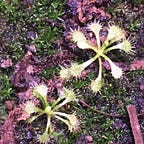Critical race theory … Whoopi Goldberg suspended for comments about Jews and race … once again we are arguing about racism … welcome to the fourth in an eight-part series on how we understand America’s original sin.The series will be published on five successive days. The line between science and pseudoscience is a thin one and it is easily crossesd. In Part 4, we see how some Native Americans sought to adjust to the threat posed by Europeans, but to no avail. Above is a picture of a Hopi village in Arizona
It is important to note that while only Africans were consigned to chattel slavery, Asians (Homo sapiens asiaticus, in Linnaeus’ classification system) and Native Americans (Homo sapiens americanus) were also deemed inferior. The 1790 Naturalization Act restricted citizenship to individuals of white descent. Native Americans, however, were something of an anomaly. They were already living within the new nation’s borders and had nation-to-nation treaties with the British government.
Their relationship with the colonies, and subsequently with the United States, was checkered. The British and the English colonists established trading relationships with many of the tribes, but tensions rose as the colonists sought to appropriate more land. King Philip’s War (1675–1678) was a devastating conflict that lasted four years and pitted several Indian nations against the New England colonists and their indigenous allies.
More destructive, however, were the diseases that the Europeans brought to the New World. Native Americans had no immunity to the various pathogens inadvertently imported from the Europe. Epidemic after epidemic — e. g., smallpox, influenza and measels — swept through native communities and tribes once they had established contact with the European colonists. It is estimated that up to 90% of all Native Americans succumbed to these illnesses, which severely impacted their ability to fend off the colonists and defend their lands.
Even those Founders who advocated treating the Indians fairly saw them as an inferior race and did not share Linnaeus’ high opinion of them. In the Declaration of Independence, Jefferson refers to “the merciless Indian Savages, whose known rule of warfare, is an undistinguished destruction of all ages, sexes and conditions.”…
